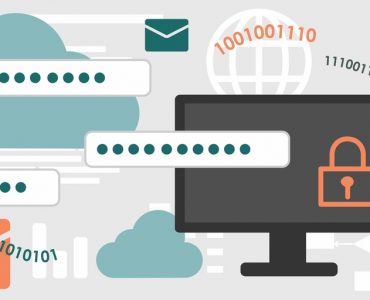Google’s Android is now the king. Today, it has become the most popular operating system for mobile phones. The platform’s popularity has drawn all manner of people. There are tech enthusiasts seeking to savor every bit of Android awesomeness. Then, there are criminals out to plant malware that would control your phone besides exposing vital personal information.
To avoid their snare, Android users are learning the art of using complex passwords. But, it takes a significant amount of time and effort to come up with a strong and unique password for different websites they visit on a regular basis. As a result, many users opt for easy, convenient passwords that are easy to remember.
What is the risk?
According to a report published by CERT, a US-based digital security organization affiliated to the Department of Homeland Security’, stronger passwords make “ a critical defense against sophisticated cybercriminals.” According to the report, “weak passwords are the number one security mistake among users.” When someone picks such a password, it is like they are closing the front door and leaving it unlocked. Anyone can open the door and slither into the house and get away with whatever pleases them while the owner is asleep.
That’s a terrible and costly experience.
That’s where a password manager comes in
A password manager software is an application used to manage passwords that a user has for various web pages and online accounts. These applications have two main functions. Firstly, they store users’ information in an encrypted format. Secondly, they also allow users to access encrypted information safely while browsing the web. Some of the best password managers for android out there include Password, aWallet, Bitwarden, Dashlane, Enpass, Keepass2Android, and LastPass, among others.
Other features that make a good password management software
There are different types of password managers out there that differ in the way they store info, encrypt it besides the additional security features they may have. The perfect password manager should balance design, price, UI, features and more. Here are some other features that come with these password managers:
- Should take notes – The essence of password managers is to secure your credentials. But that doesn’t mean they can be designed to serve as note-taking applications. You can have noted in different categories of notes – searched, tagged or shared. That means if someone selects one of the categories, say, utility bill, it should provide fields for the company, the membership number, account type, login credentials, and more. Besides, it should provide the user with the options to password protect individual notes.
- Store files – Good password managers should allow users to attach images and documents to notes. Besides, just like the notes, the managers should encrypt all the uploaded data.
- Should auto-fill forms – Form-fill profiles are one of the most exciting but often overlooked features offered by most password managers. Once a user types their details in one of the forms in their password managers, the information is populated automatically on all the forms users encounter online.
- Browse the web – Password managers should easily integrate with browsers to foster safe web browsing. That way, the password manager’s autofill component will fill forms online with your personal info.
- Should be able to generate random passwords – Sometimes people struggle to come up with secure passwords that are memorable. A password manager helps generate complex passwords and still keep them safely for the users.
Summing it up
We all know that complex passwords are not easy to remember. As a result, a lot of users have defaulted to using ‘convenient’ passwords like “abc123”, “date of birth” or even “password.” These ones are all hacker-friendly and make them vulnerable to hackers. Password managers, on the other hand, allow users to generate complex passwords and also encrypt them.













